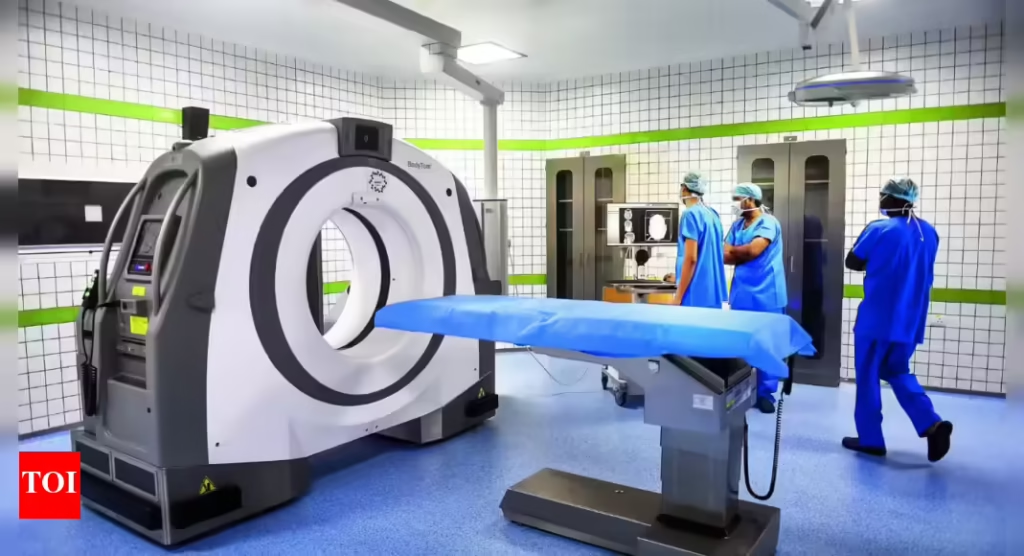From Prototype to Sales
Bringing a medical device to market is a complex but highly rewarding journey. Whether you’re an entrepreneur, engineer, or investor, understanding the step-by-step process—from prototype to commercialization—can set you up for success in this booming industry. The global medical device market is projected to reach $612 billion by 2027, offering immense opportunities for those who navigate the regulatory and sales landscape effectively.
In this guide, we’ll walk you through the entire process, ensuring you avoid costly mistakes and maximize profitability. By the end, you’ll have a clear roadmap to turn your innovative idea into a profitable reality. Visit https://dunemedicaldevicesinc.com/shop-2/ for more insights.
1. Understanding the Medical Device Market
Before diving into development, it’s crucial to understand the medical device market landscape. This includes identifying demand, competition, and regulatory requirements.
Market Research and Validation
Conducting thorough market research ensures your device meets a real need. Key steps include:
- Identify Target Audience: Who will use your device? (Hospitals, clinics, home users)
- Analyze Competitors: What similar products exist, and how can yours stand out?
- Regulatory Classification: Determine if your device is Class I, II, or III (FDA) or Class I-IV (EU).
Regulatory Pathways
Different regions have varying approval processes. Here’s a quick comparison:
| Region | Regulatory Body | Approval Time (Avg.) |
|---|---|---|
| USA | FDA | 6-12 months (510k), 12-24 months (PMA) |
| EU | CE Marking | 6-18 months |
| Asia | PMDA (Japan), NMPA (China) | 12-24 months |
2. Developing Your Medical Device Prototype
A functional prototype is the foundation of your medical device journey. Here’s how to get it right.
Design and Engineering
- Conceptualization: Sketch your idea and refine it with engineers.
- Material Selection: Choose biocompatible, durable materials.
- 3D Modeling & Testing: Use CAD software to simulate performance.
Prototyping Stages
From rough mockups to final design, prototyping involves:
- Alpha Prototype: Basic functionality test.
- Beta Prototype: Refined for usability and safety.
- Pre-Production Prototype: Nearly market-ready.
3. Regulatory Approval and Compliance
Navigating regulations is critical for medical device success.
FDA Approval Process (USA)
- Class I: Minimal oversight (e.g., bandages).
- Class II: Requires 510(k) submission.
- Class III: PMA (Pre-Market Approval) needed.
CE Marking (EU)
- Comply with EU MDR (Medical Device Regulation).
- Conduct clinical evaluations if required.
4. Manufacturing and Scaling
Once approved, scaling production is the next challenge.
Choosing a Manufacturer
- Domestic vs. Overseas: Balance cost vs. quality control.
- Quality Management: Ensure ISO 13485 compliance.
Cost Considerations
| Stage | Estimated Cost |
|---|---|
| Prototyping | $10,000 – $100,000 |
| Regulatory Approval | $50,000 – $500,000+ |
| Mass Production | $100,000 – $1M+ |
5. Sales and Commercialization
Now it’s time to monetize your medical device.
Marketing Strategies
- Direct Sales: Partner with hospitals and distributors.
- Digital Marketing: SEO, content marketing, and LinkedIn outreach.
Distribution Channels
- B2B: Sell to healthcare providers.
- B2C: E-commerce for home-use devices.
Conclusion: Your Path to Medical Device Success
Bringing a medical device to market is challenging but highly profitable if done right. By following this step-by-step guide—from prototyping to sales—you’ll position yourself for success in this lucrative industry.
Ready to take the next step? Contact us today for expert guidance and accelerate your journey to profitability.
FAQ Section
How long does it take to bring a medical device to market?
Typically 2-5 years, depending on regulatory class and region.
What’s the most expensive part of the process?
Regulatory approval and clinical trials often cost the most.
Do I need a patent for my medical device?
Yes, a patent protects your innovation from competitors.
Can I sell my device internationally?
Yes, but each region has its own regulatory requirements.
Where can I get funding for my medical device startup?
Options include venture capital, grants, and angel investors. Contact us for funding guidance.
Visit https://dunemedicaldevicesinc.com/shop-2/ for more insights on medical device commercialization.

